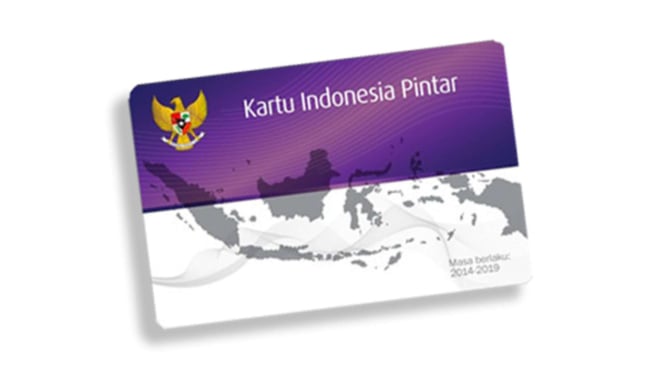In this age of heightened competition for top talent, organizations across industries are realizing the significance of developing robust relationships with potential candidates. To address this need, the concept of Candidate Relationship Management (CRM) has emerged as a vital tool in the realm of human resources and talent acquisition.
Gone are the days when merely posting a job advertisement would attract competent applicants. In today’s fast-paced digital landscape, job seekers have an abundance of options at their fingertips. This shift in dynamics has necessitated a more proactive approach from organizations to effectively engage and cultivate relationships with potential candidates rather than approaching them solely during the recruitment process.
Candidate Relationship Management refers to the practices, strategies, and technologies used to establish and maintain a positive connection with potential candidates. It is rooted in the idea of building relationships and nurturing leads throughout the hiring cycle, even if a position is not immediately available. By actively maintaining these connections, companies aim to create a talent pool that can be tapped into when the need arises, often resulting in faster and more successful hiring.
At its core, CRM revolves around fostering genuine and meaningful interactions with candidates. It involves personalized communication, consistent engagement, and tailored experiences that go beyond traditional recruitment activities. By leveraging innovative technologies, such as applicant tracking systems and customer relationship management platforms, organizations can efficiently manage candidate data, track their progress, and ensure seamless communication at all stages.
Candidates, too, benefit from this approach. CRM allows candidates to experience a more candidate-centric recruitment process that focuses on their needs and preferences. Through improved communication, timely updates, and personalized interactions, candidates feel valued and engaged, bolstering their interest in the organization and enhancing their overall experience.
For organizations aiming to gain a competitive edge in the talent market, implementing an effective CRM strategy is imperative. By investing in developing and maintaining relationships with potential candidates, organizations can proactively identify the right talent to meet their current and future needs. Additionally, a well-executed CRM approach can minimize time-to-fill, reduce recruitment costs, and lead to improved quality of hires.
To ensure success, organizations must adopt CRM as a holistic approach, considering it an integral part of their overall talent acquisition strategy. This includes aligning CRM with the organization’s employer brand, making sure that messaging and interactions consistently reflect the company’s values and culture.
In conclusion, Candidate Relationship Management has become a game-changer in the field of talent acquisition. By embracing a proactive approach to building connections, organizations can establish an invaluable talent pipeline, resulting in meaningful long-term relationships. In this highly competitive hiring landscape, investing in CRM is not only a necessity but also a powerful tool to attract, engage, and hire the best talent available.
An Introduction to Candidate Relationship Management (CRM)
Candidate Relationship Management, often abbreviated as CRM, is a strategic approach designed to foster and enhance interactions with potential job candidates. The methodology aids organizations to build and maintain relationships with job candidates, significantly increasing the odds of an organization’s success in attracting top talent.
Understanding Candidate Relationship Management
The bedrock of Candidate Relationship Management is in its ability to draw prospective candidates towards a company’s ecosystem, keep them engaged and nurtured until the ideal role comes up. To understand CRM, it helps to view it as a methodology rather than a series of random strategies. It encompasses proactive communication, personalized engagement, career-related content sharing, and maintaining a robust talent database.
Ways to Implement Candidate Relationship Management
Companies looking to take advantage of CRM can take several steps. The most esensial aspect is the establishment of a robust and detailed talent database. The next is personalized communication with potential candidates, keeping them updated and informed about career opportunities. Additionally, providing a seamless application process and a fruitful candidate experience can entice job applicants towards your brand.
Strengths of Candidate Relationship Management
The strengths of CRM lie in its ability to turn applicants into advocates for the company. The proactive communication strategy employed in CRM keeps the candidate informed and engaged. Furthermore, CRM ensures companies have a reservoir of potential candidates to draw from, allowing them to quickly fill vacancies. A good CRM system can also reduce cost-per-hire and time-to-fill metrics.
Weaknesses of Candidate Relationship Management
Despite the myriad benefits, CRM is not devoid of challenges. The system can be time-consuming and may require a significant resource investment. Also, creating personalized communication for each candidate can be challenging. Measuring the ROI of CRM may also be tricky as it involves a long-term strategy.
Your Action on Candidate Relationship Management
By understanding and implementing strategic Candidate Relationship Management practices, your organization can attract and retain top talent. Creating a reservoir of potential candidates can help your organization reduce hiring costs and fill vacancies more quickly. With CRM, your organization can build a robust talent pipeline that will help it stay ahead in the competitive business landscape.
Frequently Asked Questions
What is Candidate Relationship Management?
Candidate Relationship Management is an approach designed to foster and enhance interactions with potential job candidates.
What are the strengths of Candidate Relationship Management?
The strengths of CRM are turning applicants into advocates for the company, ensuring companies have a reservoir of potential candidates, and reducing hiring costs.
What are the weaknesses of Candidate Relationship Management?
The weaknesses of CRM include being time-consuming, requiring significant resources, and difficulties in creating personalized communication.

 2 bulan yang lalu
2 bulan yang lalu






 English (US) ·
English (US) ·  Indonesian (ID) ·
Indonesian (ID) ·